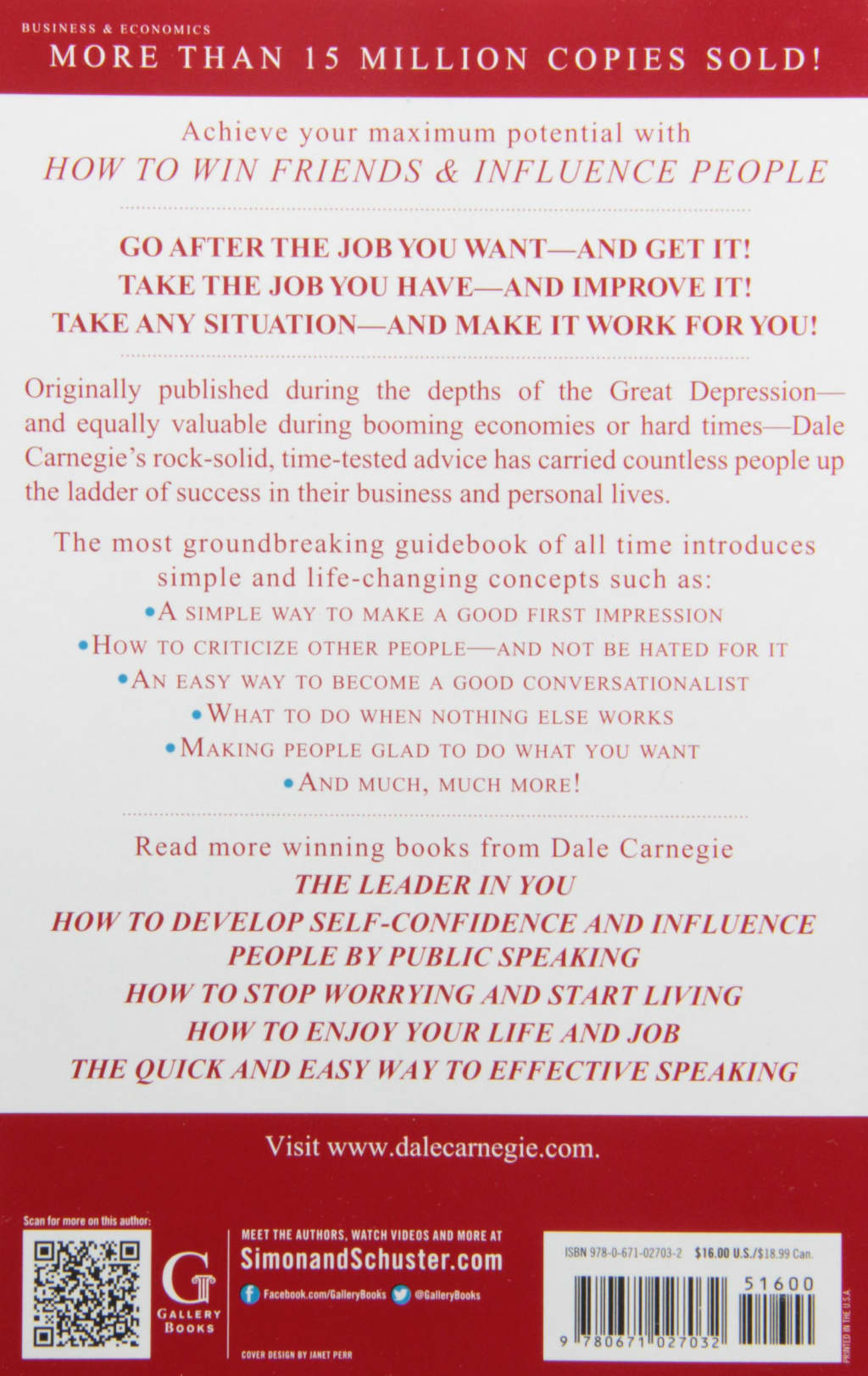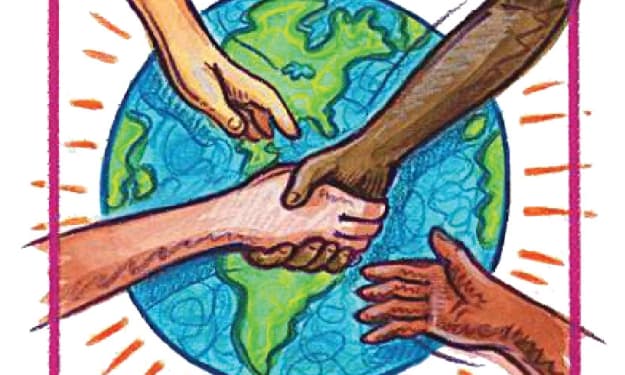Book Summary: How To Win Friends & Influence People
Understanding people.

This book is #9 this month on Amazon's most read books of the month and has been in the top twenty for 9 weeks in a row. If you have ever thought about reading this book you are part of a large group of people that have speculated what this book is about since its publishing date in 1936.
Recently I read this book on the bus going to school, taking me a month to get through. There were a bunch of great pieces of information. Here is a summary of what it is about:
The book is separated into four parts becoming more and more specific as the book goes on. It starts with the fundamentals and ends with leadership.
1. Fundamental Techniques in handling people:
There are three chapters in this first of four sections. "Don't criticize", "Show appreciation" and "Arouse in the other person an eager want" are the summaries of each chapter.
The chapter on not criticizing is based on a key feature of psychology; praise over punishment. Criticizing causes resentment and discourages people from acting at all. People rewarded with praise were more likely to commit the actions desired and people rewarded with criticism tended not to listen at all. This was key to the chapter.
Showing appreciation should be an obvious fundamental technique but many of us forget about it. The main point of the chapter is that we all have a great need to "feel important". "If you want a friend, make him feel important," Carnegie says. Sincerely thanking a person makes them feel important and is fundamental to interpersonal success.
"Arouse in the other person an eager want" means if you want someone to do something there is only one way in heaven's name to get that person to do it; make them want to do it. It is apparent that we all want people to do things but it is important to have the other person believe it was their idea. Think inception but with body language words and charisma. Although this seems immoral it is actually considered mutually beneficial if you choose something that helps both of you in a win/win situation.
2. Six ways to make people like you
There are many ways to make people like you but these six ways are considered fundamental to an influential personality. The six chapters cover;
-Become genuinely interested in other people
-Smile
-A person's name is the sweetest sound to them
-Listen, Encourage people to talk.
-Talk in terms of the other person's interests.
-Make the other person feel important
This section covers changing your social reflexes to think to listen instead of talk, smile instead of frown and to always remember names. One chapter says to talk in terms of another person's interests. What that means is if someone brings up a movie talk about that movie or movies that person might like. Make it things the other person likes.
People mostly think about themselves always. In conversation, most people are thinking about what they are going to say next or how they feel and think. It is important not to become self-conscious in conversation because everyone feels that way. The way to excel is to become genuinely interested in other people.
3. How to win people to your way of thinking
We all want to do this. It is fundamental to feeling like we accomplished something in the conversation. Here are the 12 ways to win people to your way of thinking listed in the book;
-Avoid arguing
-Never say "You are wrong"
-If you are wrong to admit it quickly and emphatically
-Begin in a friendly way
-Get the other person saying "yes"
-Let the other person do a great deal of the talking
-Let the other person think it is his idea
-Try honestly to see things from their point of view
-Be sympathetic with another person's ideas and desires
-Appeal to nobler motives
-Dramatize your ideas
-If all else fails, throw down a challenge
Creating a yes psychology to a conversation is a strange concept that was part of this section. People are wired toward a yes or no mentality in conversation and getting people on the yes track is fundamental to a positive conversation. Carnegie says, "Always ask questions that lead to a yes"
4. Be a leader: how to change people without giving offense or arousing resentment
The main changes to people this section explains are to people's attitudes and behaviors. Here is a list of 9 suggestions in the fourth section of "be a leader";
-Begin with praise and honest appreciation
-After praise and appreciation call attention to mistakes indirectly
-Talk about your own mistakes first
-Ask questions instead of orders
-Let the other person save face
-Praise every improvement
-Give the other person a fine reputation to live up to
-Use encouragement, make the fault seem easy to correct.
-Make the other person happy about doing what you suggest
An example of giving a person a fine reputation to live up to is, for example, giving a new fancy title to a job or remarking "geez you could become an author writing that way".
The section on "asking questions instead of giving orders" means to say "Could you pick that up?" instead of saying "Pick that up... Now!".
Before every book, I like to read a summary of what it is about to see if I would be interested in it. This book is thick with good information. A lot of it is covered in this summary. A link to the Amazon book it below
About the Creator
Jesse Guerrero
Christian, programmer, Runescape lover and avid learner.
Support me at buymeacoffee.com






Comments
There are no comments for this story
Be the first to respond and start the conversation.